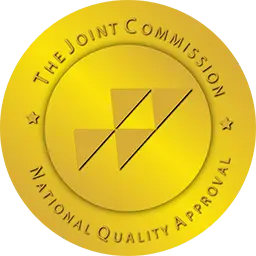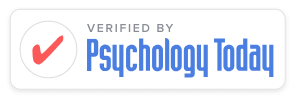Allyship plays a pivotal role in the lives of LGBTQIA+ teens. Understanding and embracing one’s identity can be challenging, and the support of allies can significantly impact this process. Allies can provide the empathy, acceptance, and advocacy that are crucial for LGBTQIA+ teens to thrive mentally and emotionally. This article explores the importance of allyship for LGBTQIA+ teens and provides practical tips on being an ally for an LGBTQ teen.
Understanding the Need for Allyship
LGBTQIA+ teens face unique challenges, including discrimination, bullying, social isolation, and mental health struggles. According to a report by The Trevor Project, LGBTQIA+ teens are at a higher risk for depression, anxiety, and suicidal ideation compared to their non-LGBTQIA+ peers. The presence of supportive allies can help mitigate these risks by offering a safe environment where teens feel valued and understood.
The Role of Allies In Supporting Adolescent LGBTQIA+ Mental Health
Allies are individuals who support and advocate for the LGBTQIA+ community. As an ally, you play an essential role in creating inclusive spaces and fostering an atmosphere of acceptance. Your actions and words can contribute significantly to the mental health and overall well-being of LGBTQIA+ teens. Here’s how you can make a difference:
1. Educate Yourself
The first step in being an ally for an LGBTQ teen is to educate yourself about the community’s experiences, history, and challenges. Understanding terms such as gender identity, sexual orientation, and the spectrum of LGBTQIA+ identities can help you become more informed and empathetic.
Learn the Language
Using correct terminology shows respect and validation. Familiarize yourself with pronouns and use them appropriately. If you’re unsure, it’s okay to ask respectfully. This small action can make a huge difference in making an LGBTQIA+ teen feel seen and respected.
2. Create Safe Spaces
Creating an environment where LGBTQIA+ teens feel safe and accepted is crucial. One way to do this is to display symbols of support, such as rainbow flags or inclusive posters, in your home, school, or community spaces. These symbols send a powerful message that inclusivity and acceptance are priorities.
The Importance of Taking a Stand Against Bullying
Bullying and harassment are prevalent issues for LGBTQIA+ teens. As an ally, it’s essential to stand up against such behaviors. Speak out when you witness discrimination and provide support to those who are being targeted. Your actions can inspire others to do the same, gradually fostering a more inclusive environment.
3. Listen With Empathy
Listening is a powerful tool for being an ally. When LGBTQIA+ teens share their experiences, validate their feelings, and provide a nonjudgmental space for them to express themselves. It’s important to listen actively and avoid interrupting or downplaying their experiences.
Avoid Assumptions
Each individual’s experience is unique, and it’s essential not to make assumptions about an LGBTQIA+ teen’s feelings or experiences. Ask open-ended questions and allow them to share as much or as little as they feel comfortable.
4. Advocate and Support
Advocacy can take many forms, from supporting inclusive school policies to standing up against discriminatory laws and practices. As an ally for LGBTQIA+ teens, it’s important to be vocal and active in advocating for their rights and well-being.
Support Mental Health Resources For Teens
Ensure that LGBTQIA+ teens have access to mental health resources that understand their specific needs. Encourage them to seek help from professionals who are equipped to provide LGBTQIA+-friendly mental health care. Supporting organizations and initiatives focusing on LGBTQIA+ mental health can also significantly impact.
5. Celebrate Diversity
Celebrate and acknowledge the diversity within the LGBTQIA+ community. Attend Pride parades, LGBTQIA+ cultural celebrations, and educational workshops. Show your support by participating and encouraging others to do the same.
Include and Empower
Inclusion goes beyond acceptance; it’s about empowering LGBTQIA+ teens to take pride in their identities. Encourage their participation in various activities and provide platforms for their voices to be heard. Celebrating their achievements and milestones can significantly boost their self-esteem and sense of belonging.
Overcoming Challenges in Allyship
Being an ally for an LGBTQ teen is a continuous learning process. It may involve unlearning biases and confronting uncomfortable truths. Here are some challenges you might face and how to overcome them:
- Implicit Biases: Recognize and address any unconscious biases. Regular self-reflection and education can help you become a better ally.
- Support Fatigue: Advocating for LGBTQIA+ rights can be demanding. Taking care of your well-being is essential to being an effective ally.
- Criticism: You might be criticized by those who don’t understand or support your stance. Stay confident in your values and continue your advocacy with compassion and resilience.
Allyship is crucial for the mental health and well-being of LGBTQIA+ teens. You can make a positive and lasting impact by educating yourself, creating safe spaces, listening with empathy, advocating for their rights, and celebrating diversity. Remember, every action counts, and your support can significantly contribute to an LGBTQIA+ teen’s journey toward acceptance, confidence, and pride.
Get Compassionate & Supporting Adolescent LGBTQIA+ Mental Health Treatment in Woburn, Massachusetts
At Crown Adolescent Mental Health, we understand the crucial role allies play in the lives of LGBTQIA+ teens. Massachusetts’s teen mental health treatment programs are designed to provide inclusive, supportive care tailored to their unique needs. If you or someone you know needs mental health support, contact Crown Adolescent Mental Health today. Together, we can foster a nurturing environment where every teen can thrive.



